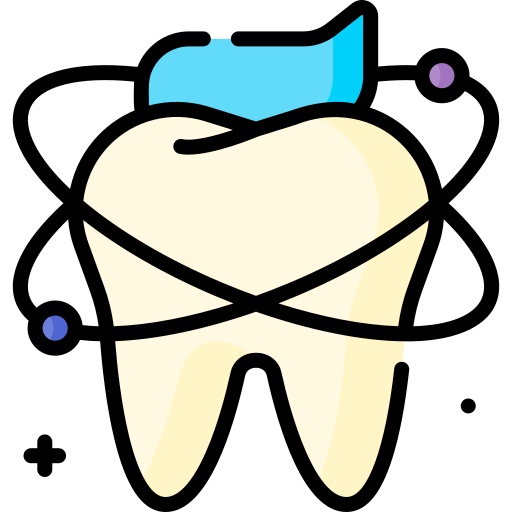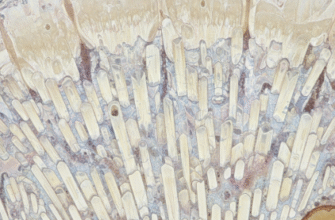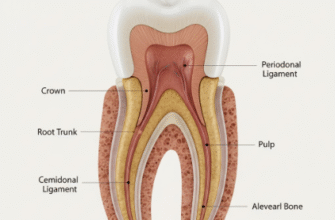The pursuit of a brighter, more radiant smile is something many of us share. In our quest for pearly whites, it’s easy to get drawn into the world of do-it-yourself remedies found across the internet. Among these, the notion of using lemon juice as a natural teeth whitener is remarkably popular. It’s cheap, readily available, and has that “all-natural” appeal. But before you reach for that lemon with visions of a dazzling grin, it’s essential to understand what this acidic fruit actually does to your teeth. The truth, unfortunately, isn’t as sweet as lemonade.
The Seductive Simplicity: Why People Believe Lemon Juice Works
The logic behind the lemon juice whitening myth seems straightforward on the surface. Lemons contain citric acid, a natural bleaching agent. We’ve seen it used to lighten hair or remove stains from fabrics and surfaces. So, the reasoning goes, if it can bleach other things, surely it can work its magic on tooth enamel, lifting away those stubborn coffee or tea stains. Many online articles and anecdotal accounts suggest applying lemon juice directly, perhaps mixed into a paste with baking soda, or even just swishing the juice around.
Some individuals might even notice a very slight, immediate change in the appearance of their teeth after trying this. This perceived initial brightening can be incredibly misleading, reinforcing the belief that they’ve discovered a simple, cost-effective whitening secret. The “natural” label is also a powerful draw for those looking to avoid commercial products with chemical ingredients. After all, it’s just a fruit – what could possibly go wrong?
The Acid Test: Unveiling the Damage to Tooth Enamel
This is where the charming idea of lemon-fresh smiles meets a harsh, scientific reality. Your teeth are protected by enamel, which is the hardest substance in the human body. It forms the resilient outer layer, safeguarding the softer, more sensitive dentin and pulp within. Despite its strength, enamel has a significant weakness: acid. And lemon juice is exceptionally acidic.
To put this into context, the pH scale measures acidity, with 7 being neutral (like pure water). Tooth enamel starts to demineralize, meaning it begins to dissolve, at a pH level of around 5.5. Lemon juice typically has a pH ranging from 2 to 3. This makes it intensely corrosive to tooth enamel. Every time you expose your teeth to lemon juice, you are essentially giving them an acid bath that actively eats away at this vital protective layer.
Enamel Erosion: A One-Way Street to Dental Problems
The most critical point to grasp about enamel erosion is its irreversibility. Unlike skin, which can heal and regenerate, or bones, which can mend, tooth enamel, once lost, does not grow back. It’s gone for good. Each application of a strong acid like lemon juice incrementally wears down this precious coating. Even if you think you’re using it sparingly or infrequently, the cumulative damage can lead to significant and permanent dental issues.
The consequences of this gradual destruction are far from the desired outcome of a beautiful, healthy smile. In fact, they are often the exact opposite:
- Painful Tooth Sensitivity: As enamel thins, the microscopic channels (dentinal tubules) that lead to the tooth’s nerve become more exposed. This exposure is what causes that sharp twinge or lingering ache when your teeth encounter hot, cold, sweet, or even acidic foods and drinks. Enjoying everyday items like ice cream, a morning coffee, or even a cool breeze can become a source of discomfort.
- The Irony of Yellowing Teeth: This is perhaps the most counterintuitive result. While the initial surface etching from lemon juice might give a fleeting illusion of whiteness, the long-term consequence of enamel erosion is often a more yellowed appearance. Beneath the naturally white enamel lies the dentin, which is inherently more yellow in color. As the enamel layer wears away, more of this darker dentin shows through, making your teeth appear discolored. So, the very method used in an attempt to whiten can ultimately lead to a more yellow smile.
- Heightened Risk of Cavities: Enamel serves as your tooth’s primary shield against the bacteria that cause tooth decay. When this protective barrier is compromised and thinned by acid erosion, teeth become significantly more vulnerable to cavities. Bacteria can more easily invade the tooth structure, leading to decay that may necessitate fillings, crowns, or even more complex dental procedures.
- Changes in Tooth Texture and Appearance: Acid erosion doesn’t always occur uniformly. It can leave tooth surfaces looking chalky, rough, or even pitted. The biting edges of your front teeth might appear translucent or become more prone to chipping and wear. These textural changes not only detract from the smile’s aesthetics but can also create more nooks and crannies for plaque to accumulate, making oral hygiene more challenging.
- Impact on Bite and Tooth Structure: In cases of prolonged and severe acid exposure, the actual shape, length, and contours of the teeth can be altered. This can potentially affect how your teeth come together (your bite) and could contribute to further dental complications over time.
Directly applying lemon juice to teeth, even if diluted or for brief periods, carries a substantial risk of causing permanent enamel erosion. This acidic damage can result in heightened tooth sensitivity, a paradoxically more yellow tooth appearance as the underlying dentin becomes visible, and an increased susceptibility to cavities. It is crucial to remember that tooth enamel cannot regenerate; once it’s eroded by acids like those in lemon juice, the damage is irreversible.
The Deceptive Brightness: Short-Lived Effects, Long-Lasting Harm
What about that initial brightening some people claim to see? It’s plausible that the potent acid in lemon juice causes a slight etching of the outermost enamel surface. This micro-etching might remove very superficial staining or the daily pellicle film, which can temporarily make teeth appear a shade whiter. However, this perceived benefit is achieved by sacrificing enamel integrity. Imagine using an extremely harsh scouring powder on a delicate, polished surface; it might lift some surface grime, but it also inevitably scratches and damages the material itself.
This superficial “whitening” is transient. The real, underlying issue – the progressive and silent erosion of your enamel – advances with every exposure. The fleeting visual improvement is quickly overshadowed by the array of long-term negative dental health consequences. It’s a classic bait-and-switch, where a seemingly simple solution leads to complex problems.
Addressing Common Misconceptions: Dilution and Baking Soda Combinations
Some advocates for lemon juice whitening attempt to downplay the risks by suggesting modifications to the method. “What if I dilute the lemon juice with water to make it less harsh?” or “Can I mix it with baking soda to form a less acidic paste?” are common questions. Unfortunately, these alterations do not render the practice safe for your teeth.
Diluting lemon juice with water might marginally reduce its immediate acidity, but even in a diluted state, lemon juice will typically remain acidic enough to erode tooth enamel over time, particularly with repeated applications. It might slow down the rate of visible damage, but the fundamental destructive process – applying acid to your teeth – persists. It’s akin to using a slightly smaller hammer to strike glass; it might take a few more taps to cause a crack, but the integrity of the glass is still compromised with each blow.
Combining lemon juice with baking soda is another popular yet ill-advised concoction. Baking soda (sodium bicarbonate) is, by itself, mildly abrasive. While some commercially formulated toothpastes incorporate baking soda in carefully controlled and safe concentrations, using it in a homemade mixture with a strong acid like lemon juice creates a double threat to your enamel. The acid first softens and weakens the enamel, and then the abrasive particles of baking soda can more easily scrub away this compromised tooth surface. This combination can actually accelerate the rate of enamel wear. The fizzing reaction you see when they combine is simply the acid and base neutralizing each other to some extent, but the resulting mixture can still be abrasive or retain enough acidity to be harmful, depending on the proportions used.
It is vital to recognize that these DIY “hacks” and kitchen chemistry experiments lack the rigorous scientific research, controlled formulation, and extensive safety testing that reputable, professionally endorsed whitening products undergo. There is no credible scientific evidence supporting the safety or long-term effectiveness of using lemon juice, whether alone or mixed with other substances, for teeth whitening. On the contrary, the overwhelming consensus in the dental community is to strongly advise against such practices due to the well-documented and serious risks involved.
Charting a Safer Course to a Whiter Smile
What Are the Proven and Safer Alternatives?
If you are genuinely interested in enhancing the whiteness of your teeth, it is crucial to avoid unverified and potentially damaging home remedies like lemon juice. The positive news is that numerous effective and, most importantly, safe avenues exist for achieving a brighter smile. Your first and most reliable resource should always be your dentist.
A qualified dental professional can thoroughly evaluate the current health of your teeth and gums, accurately identify the cause of any discoloration (as different types of stains respond to different treatments), and recommend the most suitable and safe whitening approach tailored to your individual needs and circumstances. They can discuss various options, which may include:
- Professional In-Office Whitening Treatments: This method is often the quickest way to achieve noticeable whitening results. It is performed under strict dental supervision using higher-concentration bleaching agents, which are sometimes activated by a specialized light or laser to enhance their effectiveness.
- Dentist-Prescribed Custom-Fitted Take-Home Whitening Kits: For this option, your dentist will take impressions of your teeth to create custom-made whitening trays that fit your mouth perfectly. You will be provided with a professional-strength whitening gel and instructions on how to use it in the trays at home over a designated period. This approach typically yields excellent results with more gradual whitening.
- Reputable Over-the-Counter (OTC) Whitening Products: A wide array of whitening toothpastes, strips, rinses, and gels are available for purchase in pharmacies and retail stores. When considering these, look for products that have earned the American Dental Association (ADA) Seal of Acceptance. This seal indicates that the product has been independently evaluated by dental experts for both safety and efficacy when used as directed. Even with ADA-approved products, it is still a good idea to discuss their use with your dentist, especially if you have pre-existing conditions like sensitive teeth, gum disease, or dental restorations (fillings, crowns, veneers), as these can affect the outcome or suitability of whitening.
Always remember that the foundation of a truly beautiful smile is healthy teeth and gums. Prioritizing the long-term health and integrity of your enamel over risky, quick-fix fads is paramount. What might appear as an inexpensive shortcut using lemon juice could easily lead to costly, uncomfortable, and irreversible dental problems in the future.
The Final Squeeze: Keep Lemons for Food, Not Your Teeth
A Persistent Myth That Deserves to Be Debunked
The belief that lemon juice can safely and effectively whiten teeth is a pervasive myth that, regrettably, can lead to significant and permanent damage to your dental health. While the appeal of a “natural,” simple, and low-cost solution is certainly understandable, the intensely acidic nature of lemon juice makes it a hazardous choice for your teeth. It systematically erodes the vital protective enamel, paving the way for increased sensitivity, a higher likelihood of developing cavities, and, in an ironic twist, can even cause teeth to appear more yellow over time as the darker underlying dentin becomes more exposed.
Your smile is a precious asset, far too valuable to gamble on unproven and harmful DIY concoctions. When it comes to altering the color or appearance of your teeth, the wisest course of action is always to consult with a trusted dental professional. They possess the expertise to guide you toward safe, effective, and scientifically validated methods that will genuinely enhance your smile without jeopardizing its underlying health. So, reserve your lemons for making a refreshing drink or adding a zesty flavor to your favorite dishes – your teeth will undoubtedly thank you for making the healthier choice.








